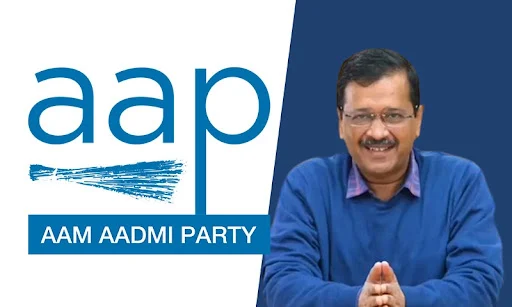The Aam Aadmi Party (AAP), which translates to "Common Man's Party," has emerged as a significant force in Indian politics since its inception. Founded in November 2012 by Arvind Kejriwal and other activists from the India Against Corruption movement, the party aimed to provide an alternative to the established political order dominated by the Indian National Congress and the Bharatiya Janata Party (BJP).
Origins and Ideology
AAP's genesis can be traced back to the nationwide anti-corruption movement led by social activist Anna Hazare. Arvind Kejriwal, a former Indian Revenue Service officer, played a pivotal role in this movement, advocating for the implementation of the Jan Lokpal Bill to combat corruption. However, diverging views on how to achieve these goals led Kejriwal and his supporters to form a political party to push for systemic change from within.
AAP's ideology centers around transparency, anti-corruption measures, and participatory democracy. The party promises to represent the common man's interests, focusing on issues such as reducing corruption, improving public services, and ensuring accountability in governance. Its policies often emphasize social justice, education, and healthcare.
Electoral Journey
AAP made a dramatic entry into politics in the 2013 Delhi Legislative Assembly elections, securing 28 out of 70 seats and forming a minority government with outside support from the Congress party. Kejriwal became the Chief Minister but resigned after 49 days over a stalemate regarding the Jan Lokpal Bill.
In the 2015 Delhi elections, AAP achieved a landslide victory, winning 67 out of 70 seats. This overwhelming mandate allowed the party to implement several key policies, such as the Mohalla Clinics initiative to provide accessible healthcare, and significant improvements in the education sector, including modernizing public schools and introducing the Happiness Curriculum.
AAP's governance model in Delhi emphasized efficient delivery of basic services, such as electricity, water, healthcare, and education, which garnered substantial support from the urban poor and middle class. Despite facing criticism and challenges, the party maintained its popularity and repeated its success in the 2020 Delhi elections, winning 62 seats.
Challenges and Criticisms
Despite its achievements, AAP has faced several challenges and criticisms. Detractors accuse the party of populism and question its governance capabilities beyond Delhi. The party's confrontational approach towards the central government, particularly under the BJP's rule, has also been a point of contention. Allegations of internal dissent and lack of democratic processes within the party have further marred its image.
Moreover, AAP's attempts to expand its influence beyond Delhi have met with mixed results. In Punjab, AAP made significant inroads, winning 20 seats in the 2017 Legislative Assembly elections and achieving a decisive victory in the 2022 elections. However, its forays into states like Goa, Gujarat, and Himachal Pradesh have not yielded substantial electoral gains.
The Road Ahead
The Aam Aadmi Party's journey reflects a significant shift in Indian politics, highlighting the potential for new political movements to challenge established parties. Its emphasis on governance, transparency, and public service delivery has resonated with a segment of the electorate disillusioned with traditional politics.
Looking forward, AAP's challenge will be to sustain its governance model in Delhi, successfully replicate it in other states, and maintain internal cohesion. As the party continues to evolve, its ability to address these challenges will determine its long-term impact on Indian politics.
In conclusion, the Aam Aadmi Party's rise underscores the dynamic nature of democracy in India, where new political entities can emerge and redefine the political landscape by addressing the aspirations and grievances of the common people. Whether AAP can sustain its momentum and expand its footprint remains to be seen, but its influence on Indian politics is undeniable.








No comments:
Post a Comment
Thank you for your support